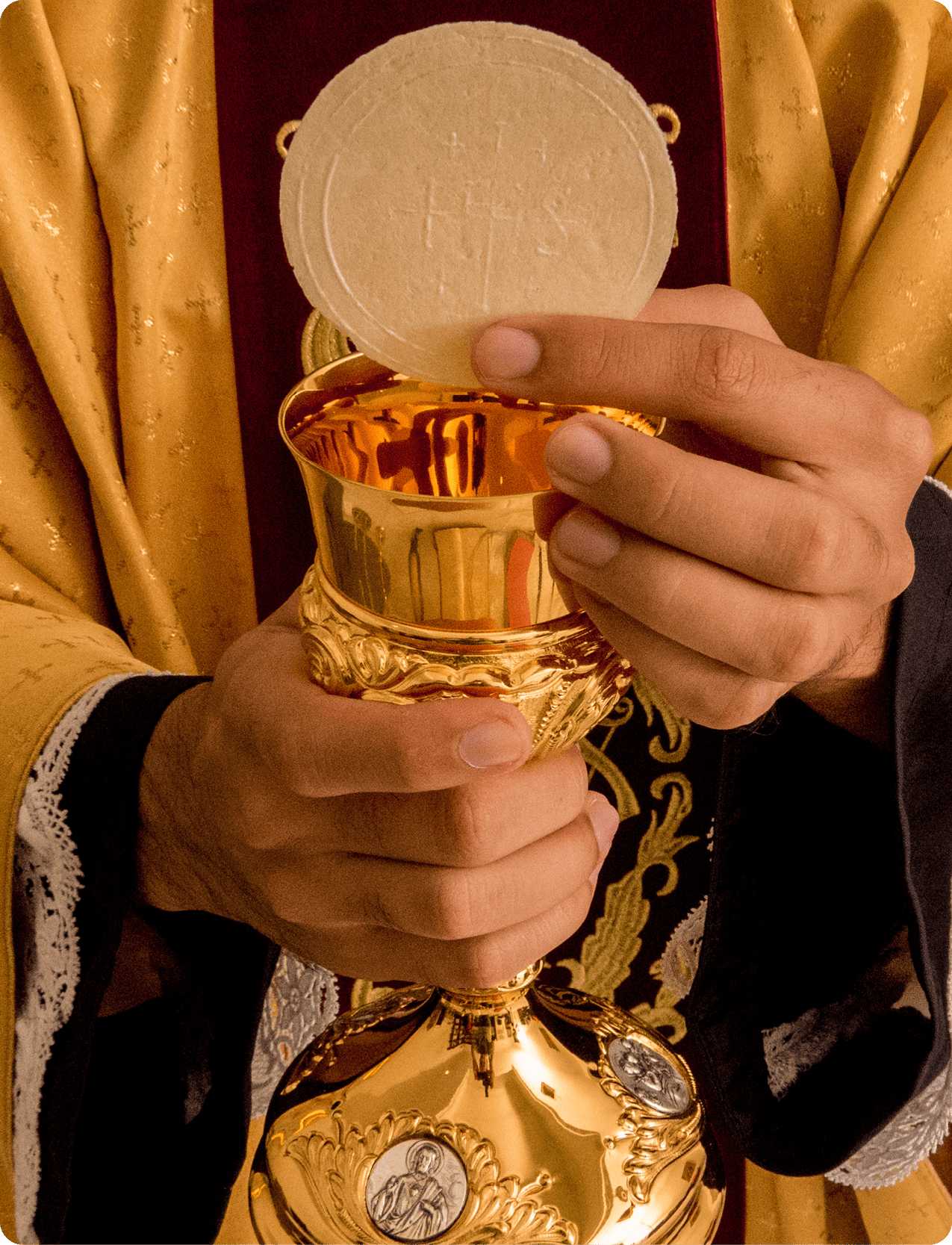“Do this in remembrance of me. Certainly, he would demand nothing more profitable, nothing more pleasant, nothing more beneficial, nothing more desirable, nothing more similar to eternal life.” — St. Albert the Great
Saint Paul, in his First Letter to the Corinthians, writes down the traditional forms of the Eucharist. Written about AD 50 — just twenty or so years after Jesus’ death and resurrection — scholars believe this to be earliest account of the Eucharist. Paul writes: “For I received from the Lord what I also handed on to you, that the Lord Jesus, on the night he was handed over, took bread, and, after he had given thanks, broke it and said, ‘This is my body that is for you. Do this in remembrance of me.’ In the same way also the cup, after supper, saying, ‘This cup is the new covenant in my blood. Do this, as often as you drink it, in remembrance of me’” (1 Cor 11:23–25). He teaches the way the memorial is to be observed and encourages Christians to continue to hold fast to it. Our Lord instructs us, “do this …” It is not by our design that we have fashioned such a memorial. Rather, we’ve received it from Christ himself, through the apostles, down through the ages … to this very day.
LET US PRAY
Lord Jesus, the Eucharist is a memorial of your life and sacrifice. You taught us to offer bread and wine, saying to do so in memory of you. May we always be faithful to your command, handing on to our own sons and daughters what we have ourselves received. Amen.

PRAYER TO THE EUCHARIST
O God, who in this wonderful Sacrament have left us a memorial of your Passion, grant us, we pray, so to revere the sacred mysteries of your Body and Blood that we may always experience in ourselves the fruits of your redemption. Who live and reign with God the Father in the unity of the Holy Spirit, God, for ever and ever.
-Collect for the Feast of Corpus Christi, composed by St. Thomas Aquinas
